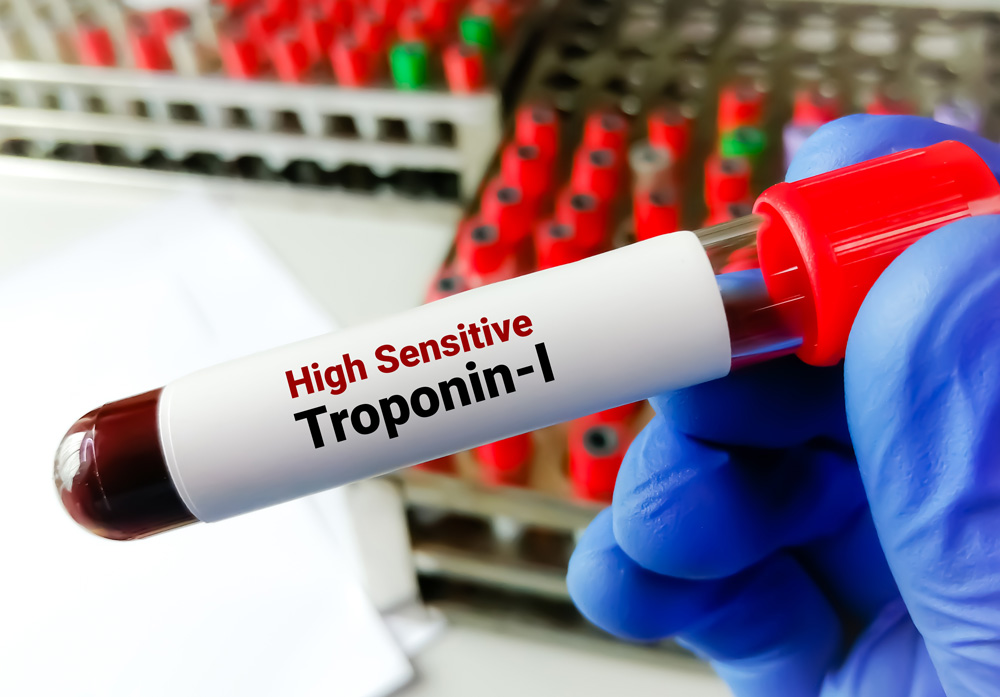
Troponin: What Is It, and How to Lower Elevated Levels?
Troponin is a crucial protein complex that regulates the contraction of both cardiac and skeletal muscles. This protein controls the contraction of the heart muscle and plays a critical role in ensuring blood circulation. Elevated levels of troponin are generally considered an indicator of heart damage or other serious health issues. Therefore, it must be brought under control.
What is Troponin?
It is a complex of proteins that control the contraction of muscle cells, particularly significant for cardiac and skeletal muscles. It becomes active when the muscle contracts, regulating the impact of other necessary proteins for muscle relaxation. The proper functioning of cardiac muscles is vital for ensuring the circulation of blood throughout the body. Hence, the levels of troponin are crucial.
Troponin Test: What Is It?
This test is designed to detect the presence of troponin protein in the bloodstream when heart cells are damaged. It can indicate if the heart muscle is under stress or has been compromised.
How Is the Test Conducted?
The troponin test is a medical test used to evaluate symptoms of heart muscle damage or heart attack. The test measures troponin levels in the blood, helping determine whether the heart muscle has been damaged or is under stress. This steps involved in conducting the test are as follows:
- Doctor's Visit: Typically, the test is conducted at the request of a doctor.
- Blood Sample Collection: A laboratory technician or nurse uses a needle to draw a blood sample from a vein in the arm. This sample will be used to measure it.
- Processing the Blood Sample: After the blood sample is collected, laboratory technicians or automated analyzers process the sample. Troponin levels are calculated based on the amount of this protein in the blood.
- Interpreting the Results: Test results are usually expressed in nanograms (ng) of it. While normal levels indicate a healthy state, elevated levels may suggest heart muscle damage or a crisis.
This test is often used in conjunction with other cardiovascular tests to help your doctor determine the most appropriate treatment. It is commonly employed for the diagnosis and monitoring of acute myocardial infarction (heart attack).
Remember to follow your doctor's instructions before undergoing this test. To interpret your test results accurately and determine the necessary steps for treatment, consult with your doctor.
What Are The Causes Of Troponin Elevation?
Several potential factors can lead to elevated troponin levels. The most common reasons include:
- Heart Attack (Myocardial Infarction): A heart attack occurs when there is insufficient blood flow to the heart muscle, resulting in damage. This condition can lead to an increase in it.
- Heart Failure: Heart failure is a condition where the heart muscle cannot pump enough blood. It carries the risk of an increase in it.
- Cardiac Surgeries: It can rise during or after cardiac surgeries.
- Trauma or Injury: Severe trauma or injury can damage the heart muscle, leading to an elevation in troponin levels.
- Myocarditis: Myocarditis involves inflammation of the heart muscle and carries the risk of increased troponin levels.
- Kidney Failure: Patients with kidney failure may exhibit elevated troponin levels.
How to Reduce Elevation:
When troponin levels are elevated, addressing the underlying cause is crucial to helping lower these levels. Treatment methods can vary depending on the type and severity of the disease.
- Heart Attack Treatment: Heart attack treatment may involve opening a blocked coronary artery or other interventions. Early intervention is crucial to prevent heart muscle damage and reduce it.
- Heart Failure Management: Treatment for heart failure may include medications, diet adjustments, and lifestyle changes. This aims to support better functioning of the heart muscle and normalize troponin values.
- Treatment for Other Causes: Managing other conditions causing elevated troponin levels will depend on the underlying disease. Conditions like pericarditis, myocarditis, or trauma may require specific treatments.
If you have concerns about elevated troponin levels, it is essential to consult with a healthcare professional. Elevated troponin levels can be a sign of a serious health issue, emphasizing the importance of early diagnosis and treatment.


